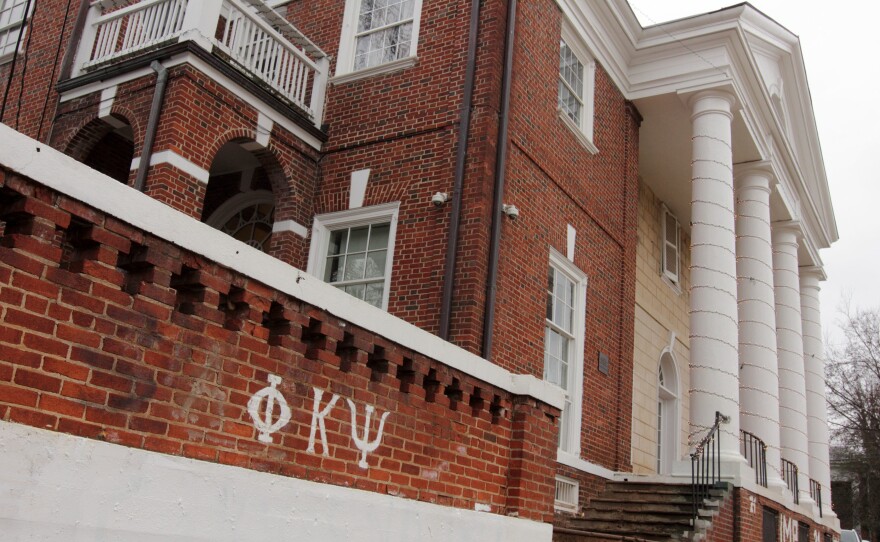Rolling Stone magazine is facing a defamation suit — again — as a federal appeals court ruled that three former University of Virginia students have a plausible case that they were personally implicated in a now-retracted story about an alleged gang rape.
The lawsuit began more than two years ago but was dismissed by a district court. Now the 2nd U.S. Circuit Court of Appeals has said the case should move forward, at least in part.
The case centers on an infamous November 2014 article by Sabrina Rubin Erdely about a student identified as "Jackie" who said she was gang-raped at a fraternity party. There were major inconsistencies in the story, and Rolling Stone retracted the piece, acknowledging it had not adequately worked to verify the account.
Nicole Eramo, a former University of Virginia associate dean who was named in the article, sued for defamation; her case was settled this spring.
The three members of the Phi Kappa Psi fraternity who sued for defamation were not identified by name. But they said the article amounted to "small group defamation" against every then-member of the fraternity — and that people who knew them personally could use clues in the piece to conclude it was about them individually.
A district court was not persuaded and dismissed the case. The three U.Va. graduates appealed.
Now, the 2nd Circuit has overturned the lower court's ruling and called for the defamation case to move forward.
Two out of three circuit judges ruled that every member of U.Va.'s Phi Kappa Psi fraternity at the time described in the article, has standing to allege defamation.
The judges pointed to statements the article attributed to the alleged gang rapists, including: "Don't you want to be a brother?" and "We all had to do it, so you do, too."
"A reader of the Article could plausibly conclude that each member of Phi Kappa Psi was implicated either directly or indirectly in the alleged rapes," the court wrote. Even if not every member was accused of participating in such a rape, the article suggested that "all members knowingly turned a blind eye to the brutal crimes," the majority wrote.
As a result, the plaintiffs, as members of Phi Kappa Psi, are eligible to make a claim of defamation against the magazine.
Judge Raymond J. Lohier dissented, saying that the judges rely on "an interpretation that is untenable (and yes, implausible) when the statements are examined in the context of the article." He said interpreting the article as referring to all the fraternity members "warps the language" beyond its meaning.
All three judges agreed on the individual claims of defamation, ruling that two of the three plaintiffs have a plausible case that the article could be read as describing them specifically.
One of the students lived in one of the few bedrooms in the frat house that could fit the description Jackie provided. Another was the fraternity's rush chair for that academic year and frequently swam at the pool (the main purported rapist described in the article was a lifeguard).
The appeals court didn't allow every claim of defamation to move forward, however.
The judges ruled that comments Erdely made in a podcast, speculating about what happened and who knew about it, were presented as opinion, and thus can't be the basis of a claim of defamation. And they dismissed the argument of one individual who said he was personally singled out in the article because he regularly rides a bike around campus, noting there is no evidence that bike-riding was so unusual that it would allow an individual to be identified.
Copyright 2017 NPR. To see more, visit http://www.npr.org/.






